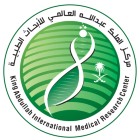
A look at the rise of digital health, AI and innovation in the way we practice medicine and offer health solutions, particularly in light of the COVID-19 lockdowns across the world.


The COVID-19 pandemic has disrupted nearly every industry on the planet but few were more impacted than the medical sector. From point-of-care to hospitals to pharmaceutical and biotechnology development, the disruptions just keep coming. While the pain wrought by COVID-19 will go down in history, so too will its lasting impacts on the digitisation of healthcare. Seemingly overnight, telemedicine and digital health apps became an integral part of care, and the use of AI and big data became much more embedded in patient management and drug development. All these technologies were growing prior to the pandemic but if there was an inflection point for the digitisation of healthcare, the COVID era was it.
“The hard-earned wisdom of 2020 and 2021 has shown that to succeed in the future, leaders in healthcare will have to focus on three things: digital growth and the virtualisation of care, leveraging data analytics and AI to strengthen clinical decision, and managing capacity with enterprise-wide surveillance,” said Elie Chaillot, Vice-President and CEO of Services Europe, Middle East & Africa at GE Healthcare, during a session on “Med-Tech/Medical Devices and Diagnostics.”
In a talk entitled ‘Data and the Future of Healthcare in the COVID-19 Era,’ Chaillot discussed ways in which the pandemic has led to hopes of a new, more resilient healthcare ecosystem built on a foundation of next-generation technologies. The digitisation will extend from diagnosis and care to patient monitoring and drug development. Hitesh Sanganee, Executive Director & Head of Emerging Innovations of AstraZeneca agreed. “The digitisation of our healthcare with respect to our projects is something we, like other companies, are starting to think about,” he revealed during his talk on open innovation and entrepreneurship. “That digital component to medicine will bring us forward. We really think that AI-enabled big data can help accelerate drug discovery in the future.”
Other companies are following suit. GE Healthcare, among others, has already begun investing more heavily in AI and monitoring technologies, particularly when targeting diseases such as cancer. According to Perry Frederick, senior director of strategic research for Europe, Middle East, and Africa at GE Healthcare, current therapy responses are hindered by physical barriers whereas future solutions will be driven by easier, cheaper community screening methods, genomic classification, digital integration and remote and cloud-based systems.
“By bringing the right technologies and solutions to bear upon the problems we face, we can support our healthcare sector and deliver better outcomes for our patients,” Frederick explained.
There has been an unparalleled development of medicine in the past decade driven by big data and technology. In her talk entitled “Re-imagine Patient Access to expert cancer care in the Era of digital Medicine, Lynda Chin noted that the digital transformation has been “supercharged” by the COVID-19 pandemic, with tools being deployed to empower both patients and healthcare providers. Chin is co-founder, President and CEO of Apricity Health, a digital platform that uses AI technologies to harness real-time patient data to empower cancer care and accelerate smarter cancer drug development.
“There are now over 350,000 digital apps available, up from just under 67,000 in 2013,” Chin noted, adding that these tools are generating enormous amounts of data about our health, from clinical data, medical records, to devices measuring vital signs and how much we eat, how we sleep, and tracking our behaviours such as smoking and exercising.
“This data can guide more precise and more personalised care to deliver better patient outcomes. The data is also a treasure trove of insight that can be used to drive discovery and to accelerate drug development,” added Chin.